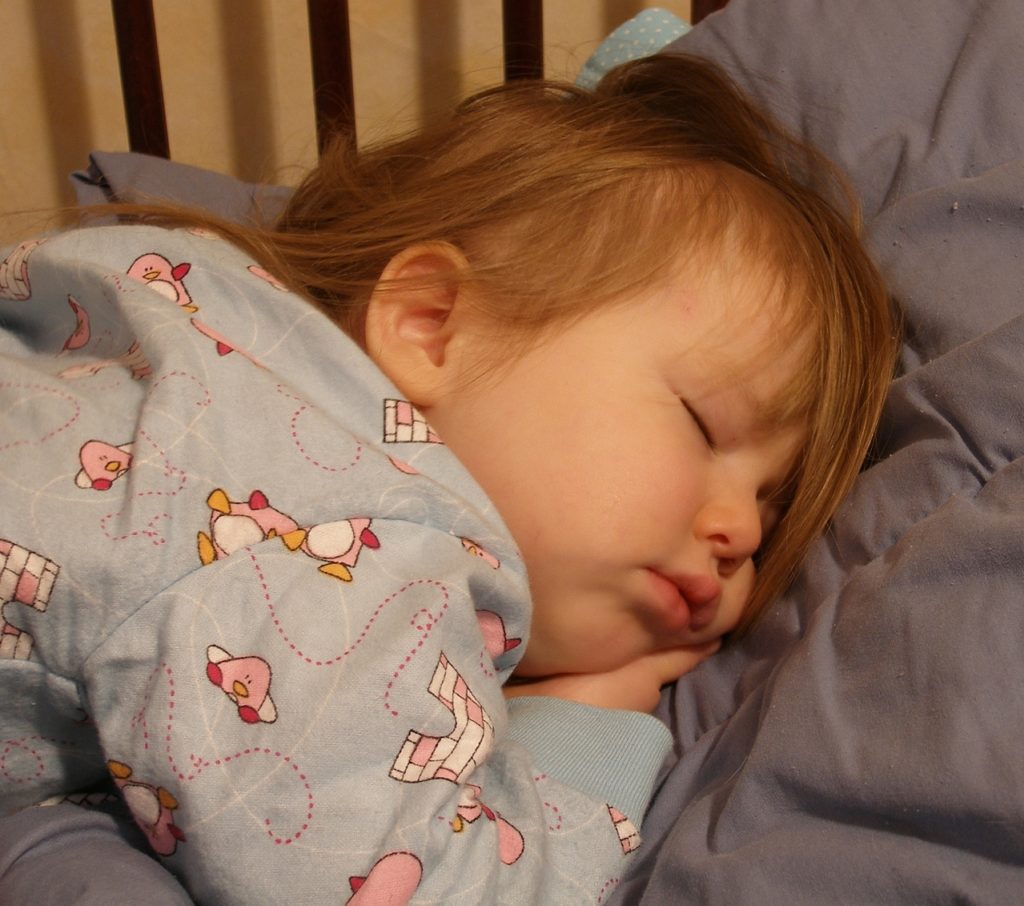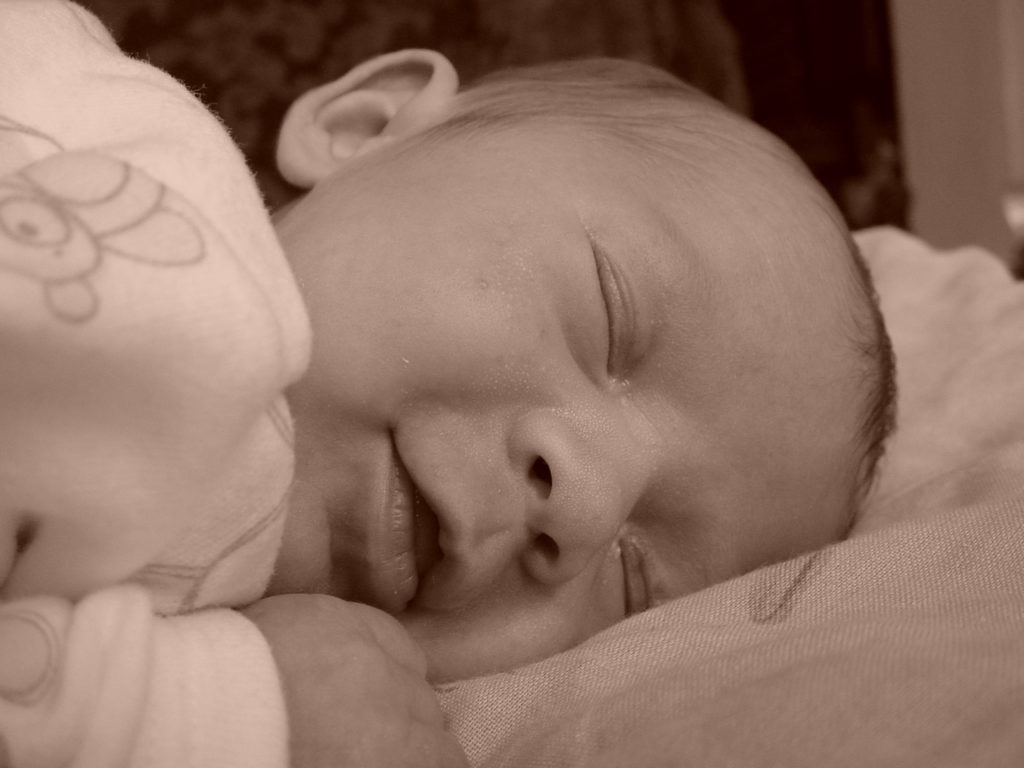I remember when my daughter was about 10 months old, I was watching her slowly drift into her sleep and thinking about how blessed I was. She looked so precious and so content while she comfortably laid next to me. I knew she wouldn’t be awake for very much longer because her eyelids kept getting heavier.
I was feeling so blissful and then suddenly.. she started humping the bed. What the hell? Was this normal? Was she just trying to get comfortable? I was mind-boggled. She is my first and only child, so this wasn’t an issue I had come across, nor something I had expected to come up. I shrugged it off and figured maybe it was just a random thing that she did.
However, it turned out not to be a one-time occurrence.
I started to notice that she was humping when she was getting tired. It got to the point that I genuinely considered talking to a doctor about it due to unsolicited comments from family members about whether or not the humping was appropriate or what they believed was causing her to do it. They didn’t understand what would compel a baby to hump.
Once the concern began, I spoke with other moms to see if this might be a common behavior, and as it turns out, it is. I did further reading and it became clear to me why my daughter was humping when she’s tired.

Why Do Babies Hump When Their Tired?
As it turns out, when babies are humping, they are just self-soothing. This is why they might be more prone to doing this when they are tired. It can help them fall asleep. They may also do this when they are bored or hungry.
Is This Normal Behavior?
Although this might concern you or take you by surprise, this is normal behavior for babies. They might do it out of boredom or to self-soothe, they find that it feels good, and then they continue doing it.
It is not sexual in nature and they are not masturbating. It can certainly be embarrassing, but that doesn’t mean it isn’t normal behavior. It can be reassuring to browse online for mom forums discussing this to remind yourself that it isn’t just your baby, and although it may be awkward, this is common.
Does this Mean my Child has Been Sexually Abused?
This self-soothing behavior is not an indicator of sexual abuse.
You may be concerned when your baby randomly begins to hump things that they may have seen something inappropriate or been a victim of sexual abuse, but this is most likely not the case. Analyze the other signs of sexual abuse. If this is the only sign you have, it’s safe to assume that your baby is just bored or tired.
When Does Your Baby Usually Hump?
You may notice patterns in your child’s behavior. When my daughter was doing this, it was typically right before she fell asleep or early in the morning when she was first waking up. This indicated to me that when she was humping, she was soothing herself because she was tired.
Children can exhibit many different self-soothing behaviors, and they likely stick to the same ones. For instance, my daughter carries a blanket with her when she’s tired. If your baby has discovered that humping helps them fall asleep, they may continuously do this. If you closely watch the pattern of when your baby does this, you’ll likely find reassurance.
How Do I get Them to Stop Doing It?
Although it may not be a big deal when they’re in bed at night self-soothing to sleep, it can be very embarrassing if they do it out in public. You may want to redirect this behavior to avoid embarrassment. Keep in mind that this is normal behavior, and there should be no shame placed on you because your child is doing something that children are known to do. However, if you still want it to stop, there are a few things you can try.
Distract them
Distracting them is a quick fix, which is good for when you’re in public and the behavior is embarrassing. Giving them a toy that they like, picking them up and giving them affection, or keeping them entertained in some way will distract them from humping. If you do this every time they hump, over time they will stop doing it.
Solve the problem that’s causing them to self-soothe.
Read your baby’s cues. Are they hungry? You could give them a meal, or a light snack if it is not mealtime yet. If they’re bored, play a game with them or snuggle on the couch and watch a movie. If they’re tired, try rubbing their back, petting their hair, or rocking them. If you soothe them, they won’t feel the need to self-soothe, so they will stop the behavior.
Take Away the Item They’re Humping
If they’re humping something when they’re tired, take the item out of their reach. This may help, or they may just find a different item. If they are humping the surface that they’re laying on such as their bed, playpen, or couch, you may not be able to use this method to deter them.
Let Them Grow Out Of It
Remember that your baby is just that, a baby. They won’t show this behavior forever. Much like carrying around a comfort stuffed animal or sucking on a pacifier, humping as a form of self-soothing is a behavior that your baby will age out of.
Although it can be embarrassing, this behavior is innocent. As adults, it can appear to be sexual behavior, but babies do not know what they’re doing when they hump to self-soothe. They feel stimulation just like everyone else, and all they know is that it feels good to them. Humping or any other similar behavior in children should not be sexualized because they are children. Keep this in mind when you are feeling embarrassed.

How Others React to this Behavior
When your child is exhibiting inappropriate behaviors, such as cursing, it may be tempting to laugh. You can admit it, it doesn’t make you a bad mom. You don’t want them to continue the behavior, but hearing your innocent four-year-old shout the f-bomb can throw you off and it might tempt you to crack up at first.
However when you do laugh you are encouraging negative behavior. They see that you laughed or that they got attention and they will do it again. This same thing applies to babies that hump to self-soothe when their tired.
If you laugh about it or make a big deal out of it, they will likely continue to do it for the sake of getting that reaction again. To keep them from humping, remind yourself and others around your child that this is normal behavior and that you shouldn’t bring any extra attention to it.
Remember: This is Just a Passing Phase
Your baby won’t stay little forever, and many of the behaviors they’re exhibiting now are temporary. Don’t overwhelm yourself with trying to correct your child’s humping. It doesn’t make you a bad mom and it isn’t out of the ordinary behavior for babies.
